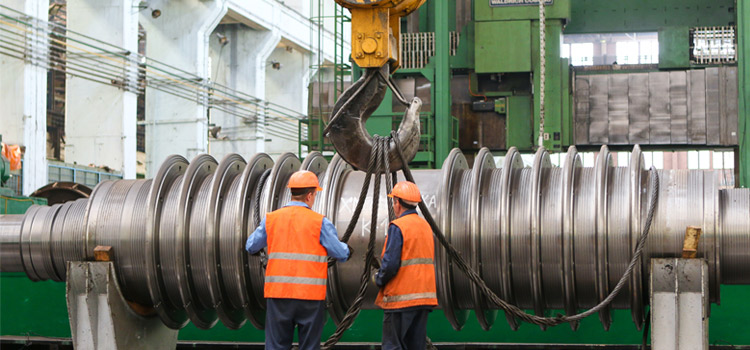The Factories Act 1948 - Explore the Basics
Posted On : December 8, 2022

Table of Contents
While establishing a manufacturing factory and meeting compliance work, a corporations lawyer may assist with all the paperwork. But that is not the exclusive legality to be taken care of. The people who are supposed to be employed to carry out the operations in such factories need to be safeguarded from any kind of exploitation. The Factories Act, 1948 ensures health, safety and welfare of workers in a factory through self explanatory provisions and delegation to concerned authorities. Explore the provisions of the law related to workers in a factory through the blog below.
Objectives of the Factories Act, 1948
Every law is brought into force to introduce some kind of regulation targeting a certain niche. There are some stakeholders and their interests. Here, the Indian Factories Act,1948 specifically aims at safeguarding the rights of workers in the following ways:
- Regulation of humane working conditions in factories.
- Designate working hours ensuring a weekly holiday.
- Ensure the basic requirements for health, safety and welfare of factory workers.
- Prevent any kind of exploitation of workers in a factory.
- Punishment for non-compliance of provisions of the Factories Act, 1948.
Scope of Indian Factories Act, 1948
To understand a given law also requires understanding its scope, i.e. the area which the provisions extend to, the subject matter of action, etc. The pointers below hep understand the same:
- The Factories Act 1948 extends to the whole of India.
- Applicability of the Factories Act 1948 covers all the factories unless restricted/ excluded by the central or state government.
- It mainly applies to the factories whereby 10 or more workers are employed, where any part of the manufacturing process is carried with the aid of power,
Salient Features of the Factories Act
Definition of Worker under Factory Act 1948
Understanding legal terms and definitions might sometimes be troublesome. Breaking the long complex and technical sentences helps understand the crux of what a legal finding actually means. As per section 2 (i) of the Indian Factories Act,1948, the definition of workers include
- A person employed;
- Directly or by or through any agency (including a contractor);
- With or without the knowledge of the principal employer, whether for remuneration or not;
- In any manufacturing process, or in cleaning any part of the machinery or premises used for a manufacturing process, or in any other kind of work incidental to, or connected with, the manufacturing process, or the subject of the manufacturing process;
- But does not include any member of the armed forces of the Union.
Section 2 (m) of the Act defines what constitutes a factory mentioned in the above definition. Also, Section 2 (k) explains the ‘manufacturing process’. The idea behind providing clear definitions is to specify the scope which the Factories Act 1948 extends to.
In Focus
The Indian Factories Act, 1948 specifically deals with the industrial aspects of employment in factories in our country.
- Authoritative Compliance (Approvals, licensing and registrations)
- Health
- Safety Measures
- Inspecting Authorities
- Working Hours
- Rules of Employment for Children and Adults
- Leave and Penalties
What is Covered?
The Act is important for defining and focusing upon the following provisions:
- Clear definition of who is a worker, which factories are subjected here, what constitutes a manufacturing process, etc.
- Clarification on dealing with hazardous processes, fatal or non-fatal injury.
- Who, as an adult, can work in a factory.
- Whether children below a certain age can work, and how much work can be assigned to an adolescent person in a factory.
- The Act also rules out the possibility of employing varying numbers of workers on different days to escape the claws of this law. It specified the average daily numbers of workers employed and the time frame during which 10 or more workers are employed in a factory.
- The Factories Act, 1948 also requires the employer to maintain a record of mandays worked, i.e. the total number of attendances during a calendar year.
- The employer also needs to keep a tally of the average number of hours worked per week.
- Provisions for action against the employer are also given if there are inhumane conditions or some kind of hazard for workers. In case of factories in Kolkata, corporate law firms in Kolkata may be contacted for dealing with such instances.
FAQs on The Factories Act, 1948
Q- Who passed the Factories Act of 1948?
A- The Factories Act, 1948 was passed by the Constituent Assembly of independent India on August 28,1948. The same came into force on April 1, 1949.
Q- What do you mean by Factory Act 1948?
A- The Indian Factories Act, 1948 is a central legislation with a social cause. The very provisions of the Factories Act 1948 ensure health, safety, and welfare of the workers employed in a factory, preventing any kind of exploitation.
Q- What is the importance of Factories Act, 1948?
A- Importance of any law can be estimated through its absence. If there was no Factories Act 1948, people working in factories might be forced to work for long hours, without a break. Their health and safety might be compromised against the projected gains of owners of such factories. Factory workers would not have anyone with whom they could voice their concerns and sufferings. In other words, there would have been only work and no welfare or humane conditions for workers in the absence of Factories Act in India.
Q- What are the rules of the Factory Act?
A- The basic rules to be followed as per the Indian Factories Act, 1948 include proper drainage system, adequate ventilation, temperature, availability of drinking water, safe working premises, etc. There is much more in the scope of Factories Act 1948 empowering the rights of workers in a factory enforceable through an employment lawyer.
























